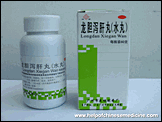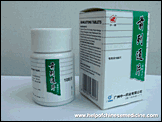However, the most common disorder of the prostate gland is benign hyperthrophy, simply an enlarged prostate gland.
Veyromax is an new natural treatment for erectile dysfunction. Veyromax provides an effective natural solution for those looking for an alternative to prescription drugs, it is completely free of side effects, unlike prescription medications.
Shenyi Center of Chinese medicine has a variety of Chinese medicines for men. click here
- Chinese Medicine for cardiovascular diseases and heart
- Chinese Medicine for gastro-intestinal disorders (poor appetite, indigestion, gastritis, diarrhea)
- Chinese Medicine for men (prostatitis, impotence etc.)
- Chinese Medicine for women (gynecological conditions, pre-menstrual syndrome, infertility)
- Chinese Medicine for liver syndromes (fatty liver, hepatitis)
- Chinese Medicine skin diseases (swelling, eczema, psoriasis)
- Chinese Medicine for asthma, bronchitis, chronic coughs
- Chinese Medicine for rheumatism, arthritis, osteoarthritis
- Chinese Medicine for hypertension
- Chinese Medicine for allergies
- Chinese Medicine for common cold and flu, sore throat
- Chinese Medicine for pain relieve
- Chinese Medicine for fatigue syndrome
- Chinese Medicine for weight loss
Dosage: half cap or full bottle cap each time(3-6g), 2 times per day, bottle contains 60 g
Manufacturer: Guangzhou Huacheng
Read more...
Symptoms include dribbling or painful urination and pain in the testicles. The remedy is also useful for urinary tract infections and testicular inflammation.
Dosage: 6 tablets for oral use, 3 times per day, contains 108 tablets Manufacturer: Guangzhou ZhongYi Pharm Co
Read more...
Qingrelishi-category Chinese medicine for chronic prostatitis: a systematic review
Qiu MX, Xiong GB, Zhou SY, Wang D, Shao JC, Wang JY.
Department of Urology, Sichuan Academy of Medical Science/Sichuan Province People's Hospital, Chengdu, Sichuan 610072, China.
OBJECTIVE: To evaluate the efficacy and safety of the Qingrelishi-category Chinese medicine (for dispelling heat and resolving dampness) in the treatment of chronic prostatitis. METHODS: Randomized clinical trials or controlled clinical trials comparing Qingrelishi with plant america, other herbal medicine and Western medicine in the treatment of chronic prostatitis were identified by electronic and manual retrieval and analysis. The methodological quality of the included trials was assessed and Meta-analysis was performed with Revman 4. 2 software. RESULTS: Forty-four randomized clinical trials or controlled clinical trials (n=5746) were identified. The methodological quality ranked high in three double-blind trials and the others ranked low. Meta-analysis indicated that Qingrelishi was more effective than Nankangpian( RR 1.22, 95% CI 1.10-1.35) and Prostate( RR 1.26, 95% CI 1.13-1.41) in the treatment of chronic prostatitis. Subgroup analysis revealed that Qingrelishi was more effective than Qianliekang (RR 1.32, 95% CI 1.19-1.45) and quinolones antibiotic (RR 1.34, 95% CI 1.15-1.57). There were no significant differences in efficacy either between Qingrelishi and a-receptor blocker and Puleanpian or between Qingrelishi plus quinolone antibiotics and quinolone antibiotics alone. Eighteen articles reported side effects and no serious adverse events were reported. CONCLUSION: Qingrelishi may be effective in the treatment of chronic prostatitis. However, the evidence is not strong due to the generally low methodological quality and the variations of the herbs.
EFFECT OF A CHINESE HERBAL MEDICINE MIXTURE ON A RAT MODEL OF HYPERCHOLESTEROLEMIC ERECTILE DYSFUNCTION
MUSTAFA EMRE BAKIRCIOGLUa, KENNETH HSUa, AHMED EL-SAKKAa, KARL-DIETRICH SIEVERTa, CHING S. LINa and TOM F. LUE,, a
aFrom the Department of Urology, University of California San Francisco, School of Medicine, San Francisco, California, and Klinik und Poliklinik fˆ¢r Urologie, Westfalische Wilhelms Universitat, Germany
Purpose
We examine the effect of a Chinese herbal medicine mixture on erectile function in a rat model of hypercholesterolemic erectile dysfunction.
Materials and Methods
In this study 32, 3-month-old Sprague-Dawley rats were used. The 8 control animals were fed a normal diet and the remaining 24 were fed 1% cholesterol diet for 4 months. After 2 months herbal medicine was added to the drinking water of the treatment group of 16 rats but not the cholesterol only group of 8. Of the 16 rats 8 received 25 mg./kg. per day (group 1) and 8 received 50 mg./kg. per day (group 2) of Chinese herbal medicine mixture. Serum cholesterol levels were measured at 2 and 4 months. At 4 months erectile function was evaluated with cavernous nerve electrostimulation in all animals. Penile tissues were collected for electron microscopy, and to perform Western blot for endothelial nitric oxide synthase, neuronal nitric oxide synthase, basic fibroblast growth factor (bFGF) and caveolin-1.
Results
Serum cholesterol levels were significantly higher in animals fed the 1% cholesterol diet compared to controls at 2 and 4 months. Nevertheless, there was no significant difference among group 1 (145 ± 30 mg./dl.), group 2 (157 ± 20) and the cholesterol only group (143 ± 15). Systemic arterial pressure was not significantly different between the animals that were fed the 1% cholesterol diet and the controls. During electrostimulation of the cavernous nerve peak sustained intracavernous pressure was significantly lower in the cholesterol only group (50 ± 23 cm. H2O) compared to the control group. Conversely erectile function was not impaired in the herbal medicine treated rats. Electron microscopy showed many caveolae with fingerlike processes in the cavernous smooth muscle and endothelial cell membranes in control and treated rats but not in the cholesterol only group of rats. Western blot did not show a difference among groups in protein expression for endothelial nitric oxide synthase and neuronal nitric oxide synthase in penile tissue but caveolin-1 and bFGF protein expression was significantly higher in groups 1 and 2 than in the cholesterol only and control groups.
Conclusions
Rats developed erectile dysfunction after being fed a 1% cholesterol diet for 4 months. Although serum cholesterol levels were similar in the cholesterol only rats and those treated with Chinese herbal medicine mixture, erectile response was significantly better in the treated group. The mechanism of the herbal medicine is unknown. High levels of bFGF and caveolin-1 expression in the treated group may protect the cavernous smooth muscle and endothelial cells from the harmful effect of high serum cholesterol.
Herbal medicine in renal and genitourinary disease.
Pinn G.
Nambour General Hospital, Queensland.
Herbs have a long history of use for treating problems of the genitourinary tract, including prostatism, infection, stones and impotence. With medical research some of these traditional uses have been found to have a scientific basis. The use of cranberry for recurrent cystitis in women and saw palmetto for prostatism are examples of plants we can now use with some confidence. As always, it is necessary to consider the potential for toxicity of herbs with long term use and some plants have been found to be nephrotoxic.
Clinical observation of the treatment of male sexual dysfunction by yangjing jiaonang
Jin BF, Huang YF, Lu XH.
Department of Andrology, Nanjing General Hospital of Nanjing Command, PLA, Jiangsu, China.
OBJECTIVE: To observe the therapeutic effect of Yangjingjiaonang, Chinese medicine for men, on the treatment of male sexual dysfunction. METHODS: Two hundred and ten patients with male sexual dysfunction were divided into 2 groups, the treatment group orally delivered with Yangjingjiaonang, and the control group administrated with Wuziyanzongwan. The treatment lasted for 60 days, and the changes of sexual function were compared and measured by the total scores of IIEF. RESULTS: After taking orally drugs for 60 days, the total scores of IIEF-5 and the total scores of the questions 11 and 12 of IIEF in treatment group elevated from (11.26 +/- 2. 72) score and (5.12 +/- 1.16) score to (16.84 +/- 3.12) score and (8.50 +/- 1.02) score, respectively, showing a significant improvement in the treatment group compared with the control (P <0.01). There was no significant difference for the treatment of premature ejaculation between the 2 groups. CONCLUSION: Yangjingjiaonang has been demonstrated to have apparent therapeutic effect on improving male sexual function as a helpful chinese medicine for erectile dysfunction.



